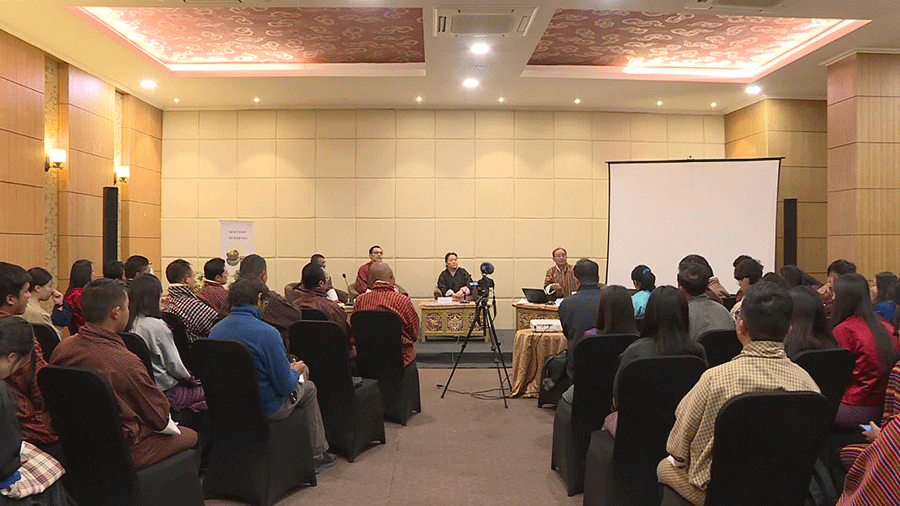
The government spends up to Nu 2 M as grant for each gewog every year. It means, for 205 gewogs, the spending can go up to Nu 410 M. Should the government reduce the number of gewogs as a cost cutting measure? Or should it stick to maintaining the existing number? This was discussed as part of Bhutan Centre for Media and Democracy and Druk Journal’s conversation on effectiveness of local government (LG) held yesterday in the capital.
Tashi Pem, the Country Director for Helvetas Bhutan who is a panellist for the discussion said the government will benefit in terms of both finance and resources if they reduce the number of gewogs.
Reducing gewogs would also mean spending less on construction and management of gewog offices and payment for the officials.
Moreover, she added that with the advancement of telecommunication and online services, physical interactions would soon cease which means the need for gewog office will become less demanding.
“We have 205 gewogs in twenty districts and we hear that it is a lot and that it should be reduced. I cannot comment on whether the number should actually be reduced but after listening to the people and looking at the country’s economy, it has a lot of impact, financially. It is important we provide financial aid wherever necessary,” said Tashi Pem.
However, Kinchho Tshering, another panellist said it is important to strengthen local governments for democracy to thrive.
“The local government which we are talking about today is the nearest and closest to the people with the highest number of administrative offices across the nation. So, my emphasis on that is the local government has the potential and the capacity to involve many people in decision making processes,” said Kinchho Tshering who previously worked in the media.
The conversation will receive perspectives from aspiring local leaders, policy makers, bureaucrats and the voters in an informal discussion.
Students from the College of Natural Resources and College of Language and Culturel Studies also attended the event.
“Today’s session was extremely enlightening for someone who knows very little about politics and then the presence of gups, the representatives from political parties, their talks, their opinions on the local government, transparency, democracy in our country, really enlightened me further on political situation in the country today,” said Pelden Wangchuk Dorji, a student of College of Natural Resources in Lobesa.
The Druk Journal is theme based and published twice a year. The conversations which are held after every publication provide solutions and ideas that are discussed in depth.
Tshering Deki









